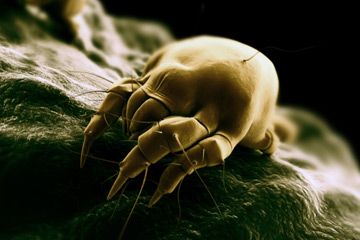Allergies are your immune system's overreaction to certain substances that are considered harmless. When you come into contact with allergens, your body starts to fight off the unwanted invaders. Your immune system produces immunoglobulin E, which then instructs your basophils and mast cells to send out an army of chemicals to ward off the allergens. When it comes to cat allergies, the substances that your body reacts to are typically certain proteins that felines secrete in their sebaceous glands and in their saliva. Another common source of cat allergies is the dander, or skin flakes, that cats shed and you then touch or inhale. Very rarely is fur the cause of an allergy, although often the dander and protein is carried on the fur when the skin flakes off or the cat grooms itself.
Although many people think that hairless cats are allergy-free, they're wrong. Since the allergens that cats produce are typically related to their skin and saliva, fur isn't a huge factor in the cat-allergy equation. In fact, Siberian cats, which are one of the cat breeds reputed to cause the fewest allergic reactions, have very thick coats. It may even be their heavy fur that reduces the allergens, since it creates a barrier between allergen-secreting skin and you. Factors that might affect how allergenic cats are include the color of the fur -- dark-colored cats seem to cause more allergic reactions than light-colored ones -- and whether or not the cat was neutered -- neutered cats tend to cause fewer reactions than non-neutered ones.
Advertisement
If you're allergic to cats, chances are you're allergic to all cats. Although you may luck out with some breeds, you can generally assume that any cat will cause a reaction. However, the time it takes for you to react may vary, depending on your level of sensitivity, how much of the allergen is around and possibly on the type of cat.
Advertisement


